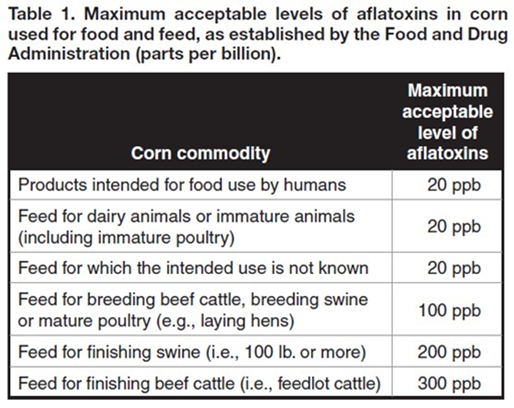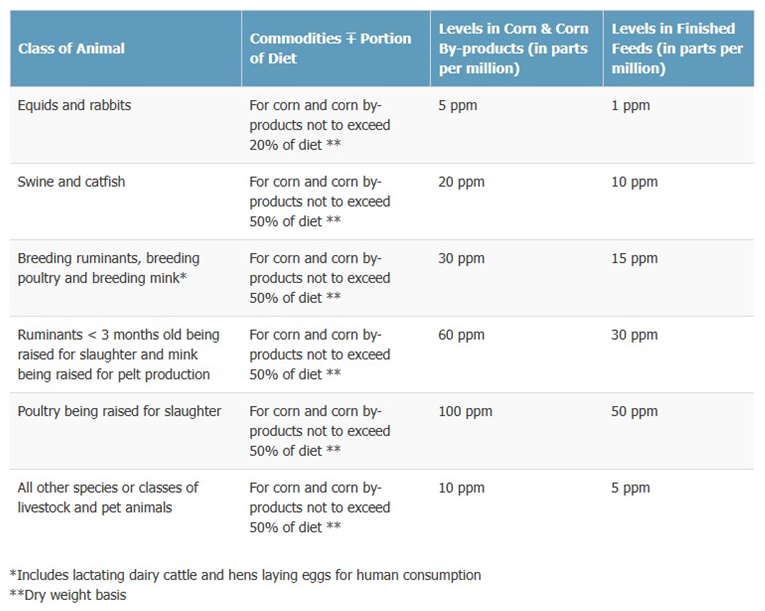For the second year in a row, drought has affected much of the corn crop in Missouri. Drought stress in corn not only affects yield, but can also cause quality issues. Along with low test weight, elevated mycotoxin levels may be present in this year’s crop, most notably: aflatoxin and fumonisin. Your crop insurance policy includes coverage for elevated mycotoxins. If your corn is drought stressed, and you are worried of quality issues, we recommend getting the crop tested for mycotoxins by an adjuster during harvest. It is important to note, the samples for the testing must be pulled BEFORE the crop is placed in storage. For crop insurance, these tests must be done by an approved testing facility to be adjusted. There will be a fee that comes along with these tests. If the corn has elevated levels of toxins, the cost of the test increases. We believe this is well worth the price of the test, as crop insurance covers elevated toxin levels.
In order for a sample to be tested, the adjuster will come to your farm, collect the sample, and get it to the proper testing center. If elevated levels of mycotoxins are present, the adjuster will go over your options and make suggestions on how to handle the problem.
Aflatoxin is the most damaging and harmful mycotoxin to animals. Consuming grain that contains this can cause severe liver damage in humans, as well as in livestock. This toxin is freely passed through milk to offspring, thus affecting newborn animals, as well as adults. It only takes a small amount. To put it in perspective, 1ppb would be like 1 corn kernel in a rail carload of corn.
Corn with aflatoxin over 100ppb may not be marketable to anyone other than salvage buyers in some cases. With high enough levels of aflatoxin, there are laws in place that prohibit this affected grain from crossing state lines. Contaminated corn can be fed in limited amounts or blended out for feeding specific groups of livestock. However, it is always best to consult a nutrition expert about your options before feeding.
Fumonisin, while being less harmful than aflatoxin, can also be detrimental if feed to livestock. Anything under 5ppm is considered safe by the FDA. For anything over 5ppm, please reference the above chart from the FDA.
While we have not seen any positive tests for these toxins as harvest begins it is important to keep these procedures in mind. If you have any questions or concerns regarding the quality of your corn, please contact our office immediately.
If you have further questions regarding feeding corn with toxins, please contact our office for resources provided by the University of Missouri Extension.
Aflatoxin in Corn
Fumonisin in Corn


